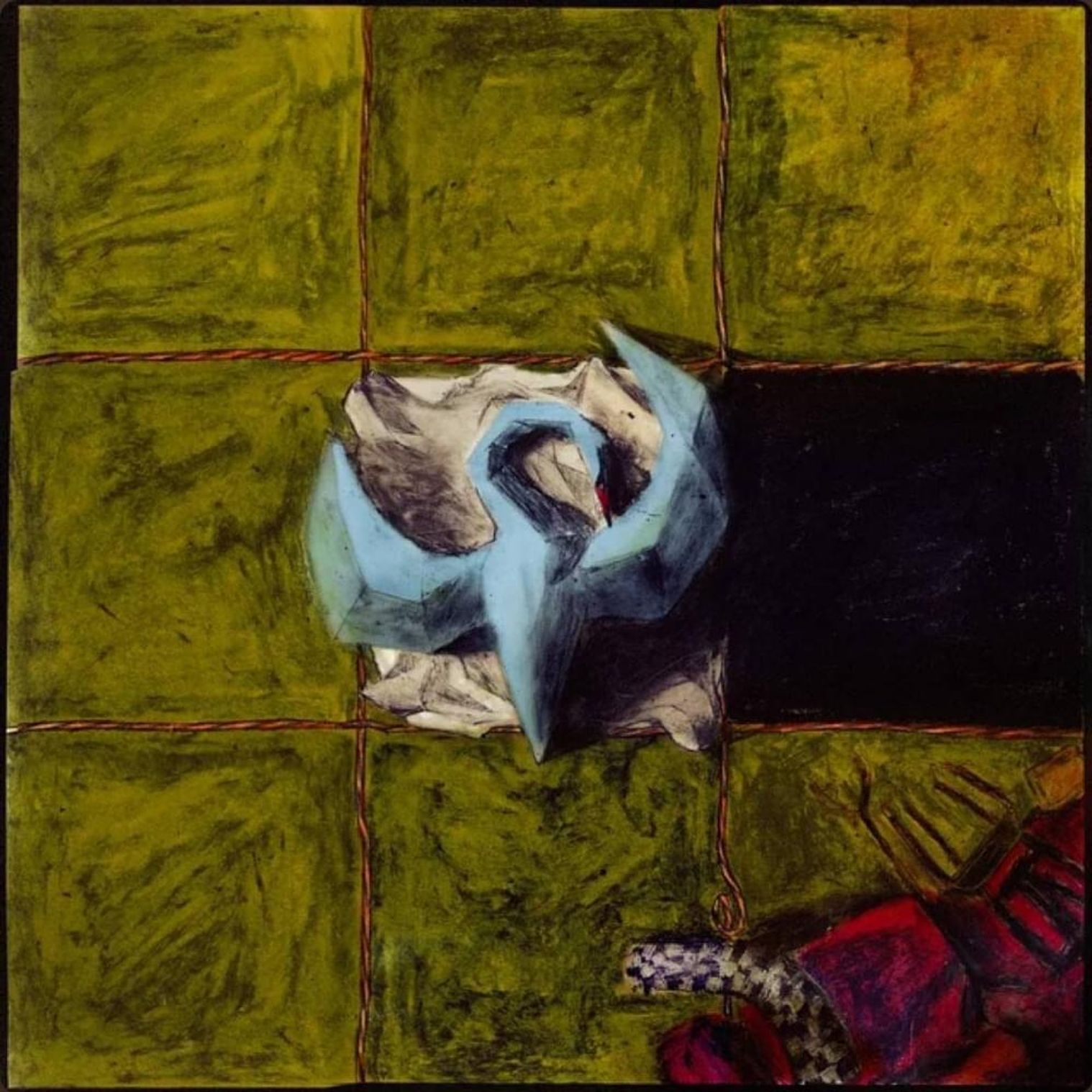A pillowy synth can be a lot of things. It can even be a thrown gauntlet. That's what it is for Angel Olsen. That pillowy synth is the first thing we hear on My Woman, Olsen's new album, and it's a big, loud signal to anyone who's been keeping tabs on Olsen's career up until now. In interviews lately, Olsen has been doing everything she can to distance herself from the spectral folksinger she was on her 2012 album Half Way Home. On her last album, 2014's astonishing Burn Your Fire For No Witness, Olsen moved away from that sound, bringing in big and rowdy indie-rock guitars and boisterous, singalong-worthy hooks. But much of the album stayed within the parameters of that old sound, and so the label stuck to her. Right now, Olsen is making sure nobody will make that mistake again. And that's why we get "Intern," the shimmering pop number that opens My Woman. That album, along with the silvery wig that Olsen wears in the video, represent the biggest jump that Olsen can possibly make away from her old sound while still remaining within what she does really, really well. She's working with a pop professional this time out -- Sky Ferreira/Charli XCX collaborator Justin Raisen, who co-produced the album with Olsen. And with "Intern," she's found a whole new dark-neon context for her faded, flickering powerhouse voice. It's a bold statment, and an unmistakeable break from the past.
But a pillowy synth can also be a red herring, and that's another function that it serves on My Woman. As you've probably already figured out, My Woman is not an Angel Olsen synthpop album, as awesome as that might be. Instead, "Intern" is the only song of its kind on the album. And once Olsen makes that clean break, she feels free enough to wander wherever her heart takes her. Stylistically, My Woman doesn't fit into anything as neat as an easily identifiable subgenre. You could call it an indie-rock album if you wanted, but that's become an entirely meaningless term in this century, and it gets even more meaningless when you apply it to something like My Woman. The LP has nothing to do with the underground rock of yore or the iPod-commercial fare that came to replace it. Instead, this is sharp, clean, expansive guitar-pop music, the type that's barely ever made anymore. In the sound of My Woman, you might hear echoes of '70s country, of musty jukebox soul, of classic '60s pop, of prime-era Laurel Canyon folk-rock. The album is liquid. It fits whatever container into which you might pour it.
But while the album never commits to any one sound (to its great credit), it does organize itself around one particular thing: Angel Olsen's voice. As a writer, Olsen prefers to keep us at arm's length, avoiding specifics and mainly trafficking in vague evocations of romantic heartache or head-rush ecstasy. Sometimes, she'll come up with a line of cutting economy and almost unsettling beauty: "Have whatever love you wanna have / But I can't be her anymore." Sometimes, she'll come up with a line that feels like the thesis statement of the album, even if it's a thesis that she doesn't really bother to support elsewhere: "I dare you to understand what makes me a woman."
But the album's best moments have more to do with delivery than on-paper words. "Coming from an endless place, heaven hits me when I see your face / I go blind every time," she howls, drawing out "blind" and "time" long enough that the words almost become songs unto themselves. And then there's "Shut Up Kiss Me," where the sentiment of the chorus is not exactly anything new, Olsen proposing to end a lover's quarrel with the command "shut up kiss me hold me tight," spitting it out in one quick exhalation, like it's all one word. (I initially heard it as "shut up kiss me 'fore we die," and I think I like my version better.) It's not the words themselves that matter. It's the raw immediacy that she brings when she sings them.
Olsen's voice is one hell of a communication tool. Like the music on the album, that voice is a tough thing to pin down. It can be welcoming and icy at the same damn time. It can hit big, drawn-out notes, and it can also maintain a conversational intimacy that most other cheap-seats singers never bother with. On My Woman, Olsen mostly doesn't structure her songs in conventional ways. Instead, she lets that voice range around, picking up steam and hitting big moments whenever she needs to hit them. She and her band have a sparse precision together, with her rhythm section bringing all the skeletal precision of an old-timey pop label's studio band. (That's probably one benefit of Olsen recording her entire album with her touring band, something more solo artists could stand to do.) But every other sound on the album is a supporting actor. That voice is the real show. And by the time your first listen ends, you probably will have forgotten all about that opening pillowy synth. Instead, it's the voice that will still reverberate in your bones.
My Woman is out 9/2 on Jagjaguwar.
[videoembed size="full_width" alignment="center"][/videoembed]
[videoembed size="full_width" alignment="center"][/videoembed]
[videoembed size="full_width" alignment="center"][/videoembed]
Other albums of note out this week:
• Isaiah Rashad's as-yet-unheard Southern soul-rap comeback The Sun's Tirade.
• Zomby's canny, architectural dance LP Ultra.
• Eluvium's organic-ambient return False Readings On.
• Nathan Bowles' experimental folk reverie Whole & Cloven.
• Sex Stains' bouncy self-titled punk rock debut.
• Chris Farren's emotional power-popper Can't Die.
• Beach Baby's woozy, tuneful indie rocker No Mind No Money.
• Wiley's grime elder-statesman statement Godfather.
• The Wedding Present's fuzzed-up indie rocker Going Going...
• The Divine Comedy's literate orchestral Britpop return Foreverland.
• King Creosote's expansive folker Astronaut Meets Appleman.
• Sharks' Teeth's DIY synth-rocker It Transfers & Grows.
• J&L Defer's moody, summery No Map.
• Serpentwithfeet's blisters EP.
• Nouvelle Vague's Athol Brose EP.






